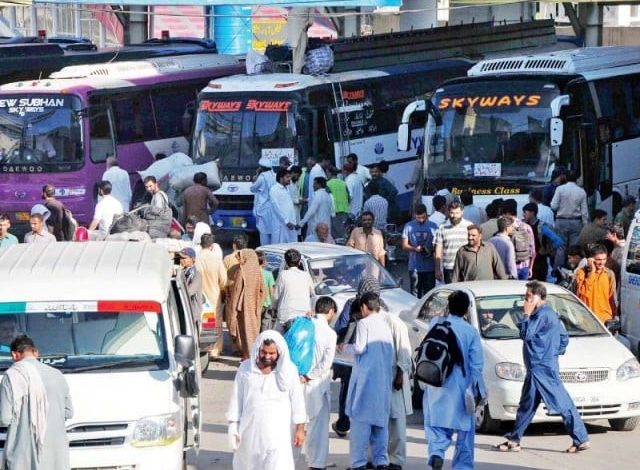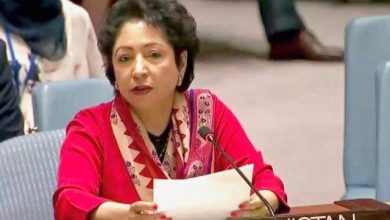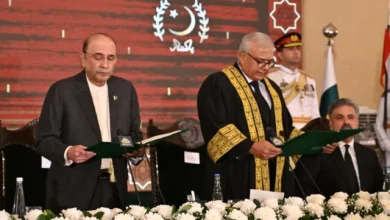Diesel price increase drives fares up

Inter-city bus terminals in the capital remained overcrowded on Monday. PHOTO: EXPRESS
RAWALPINDI:
A sudden increase of Rs6 per litre in diesel prices has led the All Pakistan Goods Transporters to raise transportation fares between Peshawar, Rawalpindi, Islamabad and Karachi by 10 to 12 per cent.
Pakistan Railways has also decided to raise its fares during the current week.
Pick-and-drop services for students and government and private employees in the twin cities have increased charges by Rs500 to Rs1,000 per person.
The rise in fares for heavy trolleys, containers and trucks on the Karachi-Peshawar route is expected to unleash a new wave of inflation this week.
Passenger fares from Rawalpindi to cities across Khyber Pakhtunkhwa, Azad Kashmir, Punjab and Sindh have also been raised. Fares within cities have gone up by Rs5 per passenger, by Rs10 in the twin cities, by Rs15 within Rawalpindi district and by Rs35 to Rs70 for other cities.
Asif Khan, central vice president of the Transport Federation, said all goods and public transport operate on diesel, which has collectively increased by Rs30 per litre over the past year. “Old fares from two years ago are no longer workable,” he said, adding that traffic fines have risen by up to 500 per cent. “No challan costs less than Rs20,000 to Rs30,000.
A public or goods transport vehicle gets four to five challans a month, costing over Rs0.1 million monthly.”
He said vehicle prices have risen by 50 per cent, tyres by 100 per cent and spare parts have become significantly more expensive. “We also have families, and drivers, helpers and conductors need wages and meals. Raising fares was unavoidable.”
Parents, however, have expressed concern over the increase in school pick-and-drop charges and demanded that the hike be withdrawn.
Parents Jameel Akhtar and Jamshed Khan said they cannot afford higher fees and will drop their children off themselves or make them use wagons or the Metro Bus.
Kiryana Merchants Association President Saleem Pervez Butt said Rawalpindi and Islamabad are not production hubs and all grocery items, vegetables and fruit come from other districts. “With higher goods transport fares, pulses, vegetables and fruit will become even more expensive.”
On the other hand, sugar prices in Rawalpindi and Islamabad remain out of control, with open market rates at Rs200 per kilo and rural areas selling at Rs210 per kilo.
The administrations of both cities appear completely helpless in controlling prices.
The officially notified rate of Rs179 per kilo is unavailable anywhere in the city. A fine, powder-like sugar has also been introduced in the market, but buyers are avoiding it. Retailers are selling this powdered sugar for Rs190 per kilo.
According to the Kiryana Merchants Association, “If we are supplied sugar at Rs173 per kilo, we are ready to sell it at Rs179.” They asked the district administration to identify which wholesale dealer is offering sugar at Rs173, saying they cannot buy expensive and sell cheap.
They said sugar mills, district administration vehicles and Sunday bazaars should provide subsidised sugar stalls instead. Retailers said they get sugar at Rs187 per kilo in wholesale, and their overhead cost is Rs12 per kilo.
With diesel becoming more expensive, loading, unloading and transportation costs have surged further. New rates for sugar and pulses will be announced from Monday, November 17.



